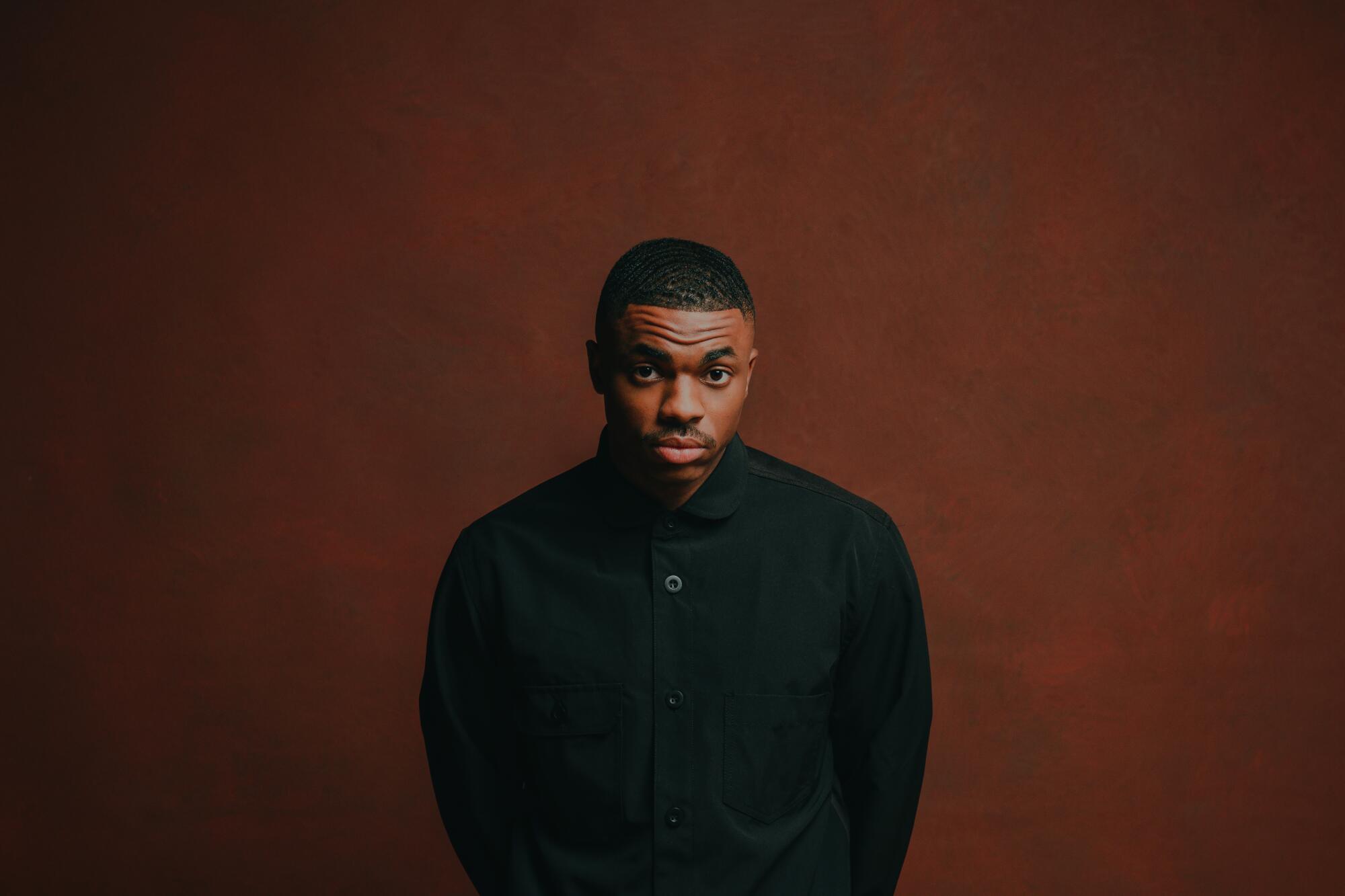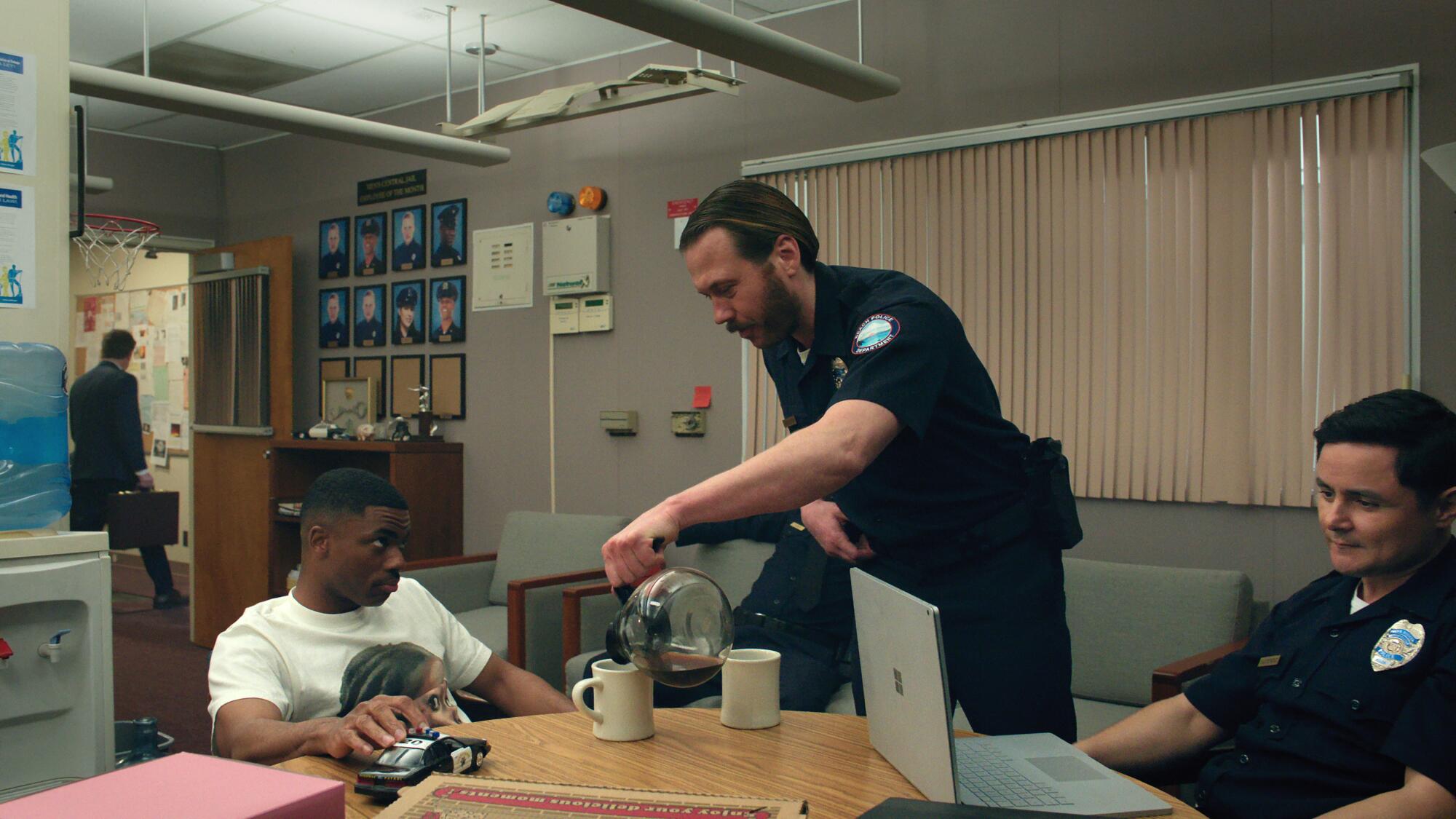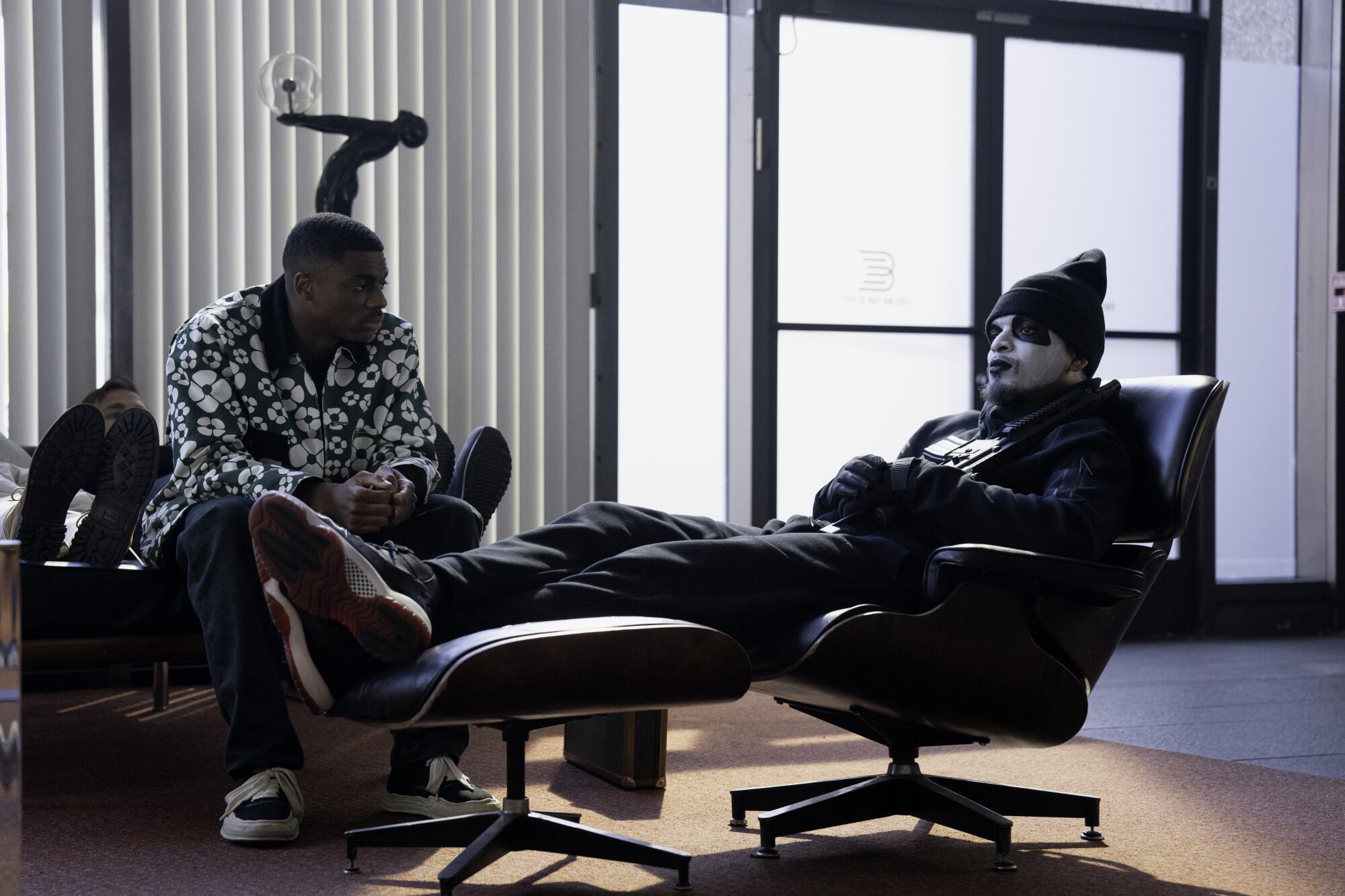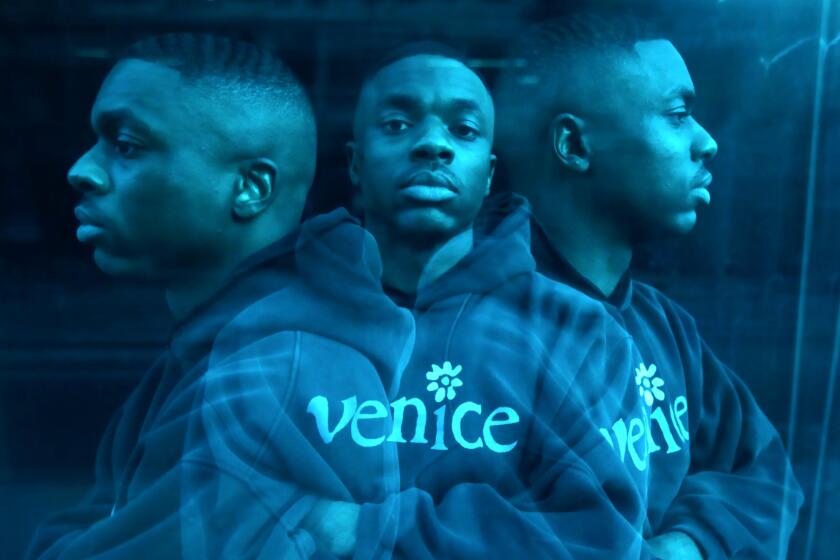
- Share via
When Vince Staples wrote an episode set at an amusement park for his new Netflix series, “The Vince Staples Show,” the rapper and actor from Long Beach hoped to shoot it at Knott’s Berry Farm in Buena Park, where as gang-affiliated kids growing up in “extremely humble circumstances,” as he puts it, he and his friends would go for fun — and sometimes more than that — instead of the far pricier Disneyland.
“We were always like, ‘Man, I wonder why trouble is following us to the $10 amusement park?’” he recalls with a laugh.
Decades later, alas, it was Knott’s that proved out of reach: Thanks to the show’s limited budget, Staples, 30, ended up shooting the episode at Riverside’s Castle Park, a — let’s call it cozier — location he remakes onscreen as the slightly sinister Surf City.
“It was probably a quarter of the size,” he says. “But I think the constraints are what allow you to really push the bounds of your creativity. When it gets tight, will you still have an idea that can thrive in that smaller setting?”

“The Vince Staples Show” is teeming with powerful ideas. Loosely inspired by events from Staples’ life, the series (which hit Netflix on Thursday) ponders the randomness of existence and the futility of celebrity as it follows a protagonist named Vince through a bank robbery and a stint in jail and a visit to that cursed theme park; the scale is lush but intimate, the tone comic yet lightly surreal — a pocket-sized mashup of “Curb Your Enthusiasm” and “Atlanta” with a dash of Jordan Peele’s ambient dread.
‘People aren’t meant to be understood,’ says Long Beach rapper Vince Staples, whose latest album is a love letter to his Ramona Park neighborhood.
What exactly happens in any given episode — and what exactly it means — is less important than how it makes you feel, says Staples, who’s always been attracted to movies and shows that don’t explain themselves fully to the viewer.
“‘Barton Fink,’ ‘Donnie Darko,’ ‘A Serious Man’ — all these things, you’re like, ‘OK, seems like I know what’s going on,’” he says. “But what’s really going on in ‘Eraserhead’?”

The show shares a certain absurdist attitude with Staples’ rich but un-glitzy music, which he began making in the early 2010s as a satellite member of L.A.’s Odd Future collective. And of course it wound up on Netflix as a result of his success in hip-hop, which includes five critically acclaimed studio albums, collaborations with the likes of Billie Eilish and Gorillaz and a spot for his song “Magic” on one of former President Obama’s annual summer playlists.
Yet according to Kenya Barris, the “Black-ish” creator who’s among the series’ executive producers, “This is not a rapper show — that was very, very, very important to Vince.” Indeed, Barris says Staples’ deadpan delivery reminds him of no one so much as … Bob Newhart.
Staples, who appeared in last year’s “White Men Can’t Jump” reboot and had a recurring role on Season 2 of “Abbott Elementary” (as Maurice, who dates Quinta Brunson’s Janine), throws out plenty of other non-rap influences on his comedy. “I’m a fan of Kevin Smith and Andy Griffith,” he says on a recent rainy morning at the Netflix building on Sunset Boulevard. Dressed in a black cardigan and baggy cargo pants, he remembers watching reruns of “M*A*S*H” and “I Love Lucy” with his grandparents and identifies Adam McKay and Steve Carell’s work as a crucial part of his childhood.
“I find humor in moments of discomfort and in how we deal with misfortune,” he says, though what’s so funny — and so beguiling — about “The Vince Staples Show” is how casually it handles the prospect of disaster, as in the episode where those bank robbers turn out to be old pals of Vince’s.

“There’s a matter-of-factness to his storytelling that brings a humanity to the hood,” Barris says. “The hood is not salacious or explosive to the people who live there. If you grow up in that situation, you’re not like, ‘Oh my God, every day is a nightmare!’ It’s just your life.”
To Staples’ mind, the show is “bleak but with a sense of optimism that one day doesn’t define the next.” (You may have seen the billboards around town that borrow a lyric from Ice Cube — “Today was a good day” — as a tagline above an image of Staples grinning with a black eye.) His original conception of the series was darker than the finished product — so dark, Staples says, that Netflix insisted he start over eight weeks into a writers’ room.
“We had a meeting where they said, ‘Hey, this isn’t gonna work on the platform,’” he recalls. “But I don’t know if that was necessarily a bad thing.”
Staples calls himself “a process person,” meaning that for him the value of a project lies in its creation — in what he can learn, good or bad, about making art — rather than in its reception.
“If a million people watch the show or one person watches the show, that doesn’t really dictate how I feel emotionally because I got to do the thing,” he says. Besides, tastes change over time. When he dropped his second LP, 2017’s “Big Fish Theory,” “everybody hated it,” he says, which isn’t quite true even if some listeners were flummoxed by the music’s harsh electronic production. “Now it’s my best album and people are asking me for another one.”
Is he still thinking about rap amid his foray into Hollywood? “Why not?” he answers. “It’s all the same — it’s just words and the particular application of those words, you know? And a lot of the concepts in these episodes, I’ve been saying in my music for years.”
Not that he cares whether anyone knows that. Staples, who despite his rising profile says he doesn’t think of himself as a famous person, was at a birthday party for a friend’s teenage daughter the other day when he was surrounded by a bunch of kids asking for photos with the guy from “Abbott Elementary.”
“The way I view fame is: If those kids tell me they love me from TV and I’m like, ‘Name a song,’ then I’m a dick.”
More to Read
The complete guide to home viewing
Get Screen Gab for everything about the TV shows and streaming movies everyone’s talking about.
You may occasionally receive promotional content from the Los Angeles Times.








